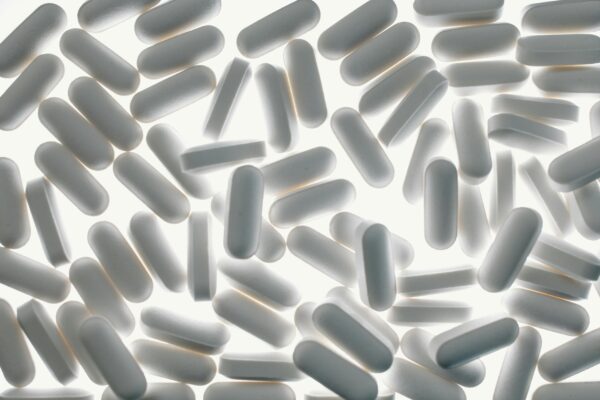If you’re a man grappling with the effects of vortioxetine on your sexual health, let’s break it all down in plain English. This article dives deep into the relationship between vortioxetine and erectile dysfunction (ED), shedding light on what you can do to tackle this issue while staying on top of your mental health game.
- What is Vortioxetine?
- Can Vortioxetine Cause Erectile Dysfunction?
- Why Does Vortioxetine Affect Sexual Health?
- How Common is Erectile Dysfunction with Vortioxetine?
- Signs of Erectile Dysfunction Linked to Vortioxetine
- Should You Stop Taking Vortioxetine?
- How to Manage Erectile Dysfunction While Taking Vortioxetine
- How Long Does Sexual Dysfunction Last?
- When to Seek Immediate Help
- Final Thoughts
- Studies, Sources, and Links
- FAQs: Vortioxetine and Erectile Dysfunction
- Question: Does vortioxetine cause erectile dysfunction?
- Question: How does vortioxetine affect sexual function?
- Question: Are the sexual side effects of vortioxetine permanent?
- Question: Can I treat erectile dysfunction while on vortioxetine?
- Question: Should I stop taking vortioxetine if I experience erectile dysfunction?
What is Vortioxetine?
Vortioxetine, sold under the brand name Trintellix, is a prescription medication primarily used to treat major depressive disorder (MDD). It works by enhancing serotonin activity in the brain, which is thought to improve mood, focus, and overall mental well-being. This dual-action mechanism has made it a popular choice for many, but, like most medications, it doesn’t come without potential side effects.
Can Vortioxetine Cause Erectile Dysfunction?
Let’s cut to the chase: Yes, vortioxetine can potentially cause erectile dysfunction. Sexual dysfunction is a well-documented side effect of many antidepressants, and vortioxetine is no exception. While not all men will experience ED, the risk is something to be aware of.
Here’s why this happens: Vortioxetine alters neurotransmitters like serotonin. While this can elevate your mood, it may also interfere with other bodily systems, including the mechanisms that regulate your sexual performance. Reduced libido, difficulty achieving or maintaining an erection, and delayed ejaculation are some of the common complaints.
Why Does Vortioxetine Affect Sexual Health?
Sexual health is a complex interplay of hormones, blood flow, and nerve signals. Vortioxetine’s effect on serotonin levels can disrupt this delicate balance.
- Increased serotonin: While great for mood, high serotonin can suppress sexual desire and delay arousal.
- Dopamine inhibition: Dopamine, often dubbed the “pleasure chemical,” is crucial for sexual satisfaction. Vortioxetine may unintentionally dampen its effects.
- Circulatory impact: Proper blood flow is vital for an erection. Any disruption, whether physical or chemical, can throw things off course.
How Common is Erectile Dysfunction with Vortioxetine?
Sexual dysfunction, including erectile dysfunction, is reported by up to 10-20% of men taking vortioxetine. However, the exact percentage varies depending on factors like dosage, age, and individual response.
If you’re dealing with this, take a deep breath—you’re not alone. Many men face similar struggles and find solutions that work for them.
Signs of Erectile Dysfunction Linked to Vortioxetine
Not sure if vortioxetine is the culprit? Here are some telltale signs:
- Trouble achieving or maintaining an erection during sexual activity.
- Lowered interest in intimacy or sexual activity.
- Difficulty reaching climax despite adequate stimulation.
If these symptoms started after you began vortioxetine, there’s a good chance the two are connected.
Should You Stop Taking Vortioxetine?
Hold on, don’t toss that pill bottle just yet. Abruptly stopping any antidepressant, including vortioxetine, can lead to withdrawal symptoms and a potential relapse of depression. Instead, talk to your doctor about your concerns. They might adjust your dosage, suggest alternative medications, or recommend treatments to address the ED specifically.
How to Manage Erectile Dysfunction While Taking Vortioxetine
1. Open Up to Your Doctor
This might feel awkward, but trust us—it’s worth it. Your doctor can’t help unless they know what’s going on. Be honest about your symptoms so they can tailor a solution.
2. Explore Alternative Antidepressants
Not all antidepressants affect sexual function the same way. Some medications, like bupropion (Wellbutrin), are known to have a lower risk of sexual side effects.
3. Incorporate ED Treatments
Your doctor may prescribe medications like sildenafil (Viagra) or tadalafil (Cialis) to address ED directly. These drugs can help improve blood flow and support healthy erections, even while you’re on vortioxetine.
4. Lifestyle Adjustments
Making a few tweaks to your daily routine can have a big impact on your overall sexual health. Here’s what you can do:
- Exercise regularly: Boost circulation and testosterone levels.
- Eat a balanced diet: Fuel your body with nutrients that support vascular health.
- Reduce stress: Practice mindfulness or relaxation techniques to combat anxiety.
- Limit alcohol: Too much booze can mess with your performance.
5. Counseling or Therapy
Sometimes, sexual dysfunction isn’t purely physical. If performance anxiety or stress is playing a role, a therapist can help you work through it.
How Long Does Sexual Dysfunction Last?
For many men, the sexual side effects of vortioxetine diminish over time as the body adjusts to the medication. This could take a few weeks to a couple of months. If symptoms persist beyond that, it’s time to revisit the conversation with your doctor.
When to Seek Immediate Help
Erectile dysfunction can be frustrating, but in some cases, it could signal a more serious problem. Seek medical attention if you experience:
- Persistent inability to achieve an erection.
- Severe pain during sex or ejaculation.
- Emotional distress or relationship strain caused by ED.
Final Thoughts
Look, dealing with erectile dysfunction while managing your mental health isn’t exactly a walk in the park. But here’s the good news: You’ve got options. Whether it’s adjusting your medication, exploring ED treatments, or making a few lifestyle changes, there’s a way forward.
Keep your chin up, talk to your doctor, and remember—you’re not defined by this challenge. Your health and happiness are worth fighting for.
P.S. Don’t let ED take the wheel. You’re in control, and there’s a whole toolbox of solutions waiting for you to unlock. Go get ‘em, champ.
Studies, Sources, and Links
When tackling a topic as important as vortioxetine and erectile dysfunction, reliable studies and data are essential. Below are some trusted resources and research findings to support the information provided in this article.
Studies on Vortioxetine and Sexual Dysfunction
- Research on Antidepressant-Induced Sexual Dysfunction:
A study published in the Journal of Clinical Psychiatry explores the sexual side effects of serotonergic antidepressants, including vortioxetine. - Vortioxetine’s Impact on Sexual Functioning:
A 2018 clinical trial evaluated the sexual side effects of vortioxetine compared to other antidepressants. The study found that while vortioxetine might have a slightly better profile, sexual dysfunction remains a notable concern. - Erectile Dysfunction and Antidepressants:
An article in The International Journal of Impotence Research dives into the mechanisms behind antidepressant-induced erectile dysfunction, with a focus on serotonin’s role.
Key Sources on Erectile Dysfunction and Treatment
- Mayo Clinic:
The Mayo Clinic provides comprehensive insights into the causes, treatments, and prevention of erectile dysfunction. - American Urological Association (AUA):
The AUA offers guidelines on diagnosing and treating ED, including the use of medications like sildenafil and tadalafil. - National Institutes of Health (NIH):
The NIH has several articles on how antidepressants affect sexual health and possible management strategies.
Helpful Links for Further Reading
- WebMD – Antidepressants and Sexual Side Effects
An easy-to-read guide on how antidepressants may cause sexual dysfunction and what you can do about it. - Healthline – Erectile Dysfunction Treatment Options
A detailed breakdown of both medical and lifestyle solutions for ED. - Everyday Health – Managing Depression and Sexual Health
Practical advice on maintaining intimacy while addressing depression.
Why Reliable Sources Matter
Accurate and well-researched information ensures you make the best decisions for your health. Healthcare professionals and researchers worldwide trust the studies and links above. Use them to understand your condition better and explore options to improve both your mental and sexual well-being.
FAQs: Vortioxetine and Erectile Dysfunction
Question: Does vortioxetine cause erectile dysfunction?
Yes, vortioxetine can cause erectile dysfunction in some men. Sexual side effects, including reduced libido and difficulty maintaining an erection, are common with antidepressants that affect serotonin levels.
Question: How does vortioxetine affect sexual function?
Vortioxetine increases serotonin levels in the brain to treat depression. However, this can suppress dopamine and disrupt the processes involved in sexual arousal and performance, potentially leading to erectile dysfunction.
Question: Are the sexual side effects of vortioxetine permanent?
No, the sexual side effects are usually not permanent. Many men find that these effects diminish as their body adjusts to the medication, which can take a few weeks to a few months. If the symptoms persist, consult your doctor.
Question: Can I treat erectile dysfunction while on vortioxetine?
Yes, there are options available. These include lifestyle changes like exercise and diet, medications like sildenafil (Viagra), or switching to another antidepressant with fewer sexual side effects. Speak to your doctor for personalized advice.
Question: Should I stop taking vortioxetine if I experience erectile dysfunction?
No, do not stop taking vortioxetine abruptly as this can lead to withdrawal symptoms and a relapse of depression. Instead, discuss your concerns with your doctor to explore adjustments or alternative treatments.
Did you know? Many antidepressants, including vortioxetine, affect not just mood but also serotonin levels, which can influence how your brain and body respond to stress, pleasure, and even sexual stimulation. This intricate connection is why balance is key when managing your mental and physical health.
(This article is for informational purposes only and should not replace professional medical advice. Always consult a healthcare provider for personalized guidance.)





